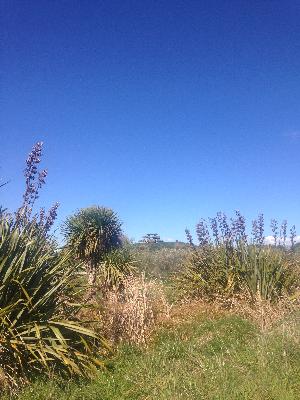
More than two decades of steady-but-consistent work and almost twenty thousand native plants later we now see corridors of native plantings throughout Seresin Estate’s original vineyard and olive grove site in Marlborough. Focussing on non-farmed, abandoned gullies and creeks, these ribbons of nature are now a vibrant oasis full of different life. A part of our sustainable vision has always been to have areas where nature can reside, away from the constantly disturbed farming areas.
Our rehabilitation program has been conducted without the use of herbicides, as a part of our biodynamic agriculture policy. Unwanted grasses have been regularly hand-harvested for inclusion in our compost making. We also have broom, gorse, willow and elder to remove. These problem weeds are either mulched with our vineyard equipment or put through a wood-chipper. They provide us with valuable carbon and are treated as a gift from nature for our compost piles.
Our soils are low in selenium. We have been farming with horses now for over five years, and we have our own sheep and cows. By fencing along the edges of our native plantings we can give our animals access to deep rooted perennial plants that have been able to fix some selenium in their tissue. Animals can use these plants to self medicate.
Areas that were once over grown with willow and old man’s beard now are covered in mature flax, cabbage trees and many other species. We also have pukeko, eels and koura. Our neighbours are also planting natives in one way or another and slowly pushing the feral willow aside.
True sustainability is when there is enough time and energy to treat the whole landscape with a little more respect.




